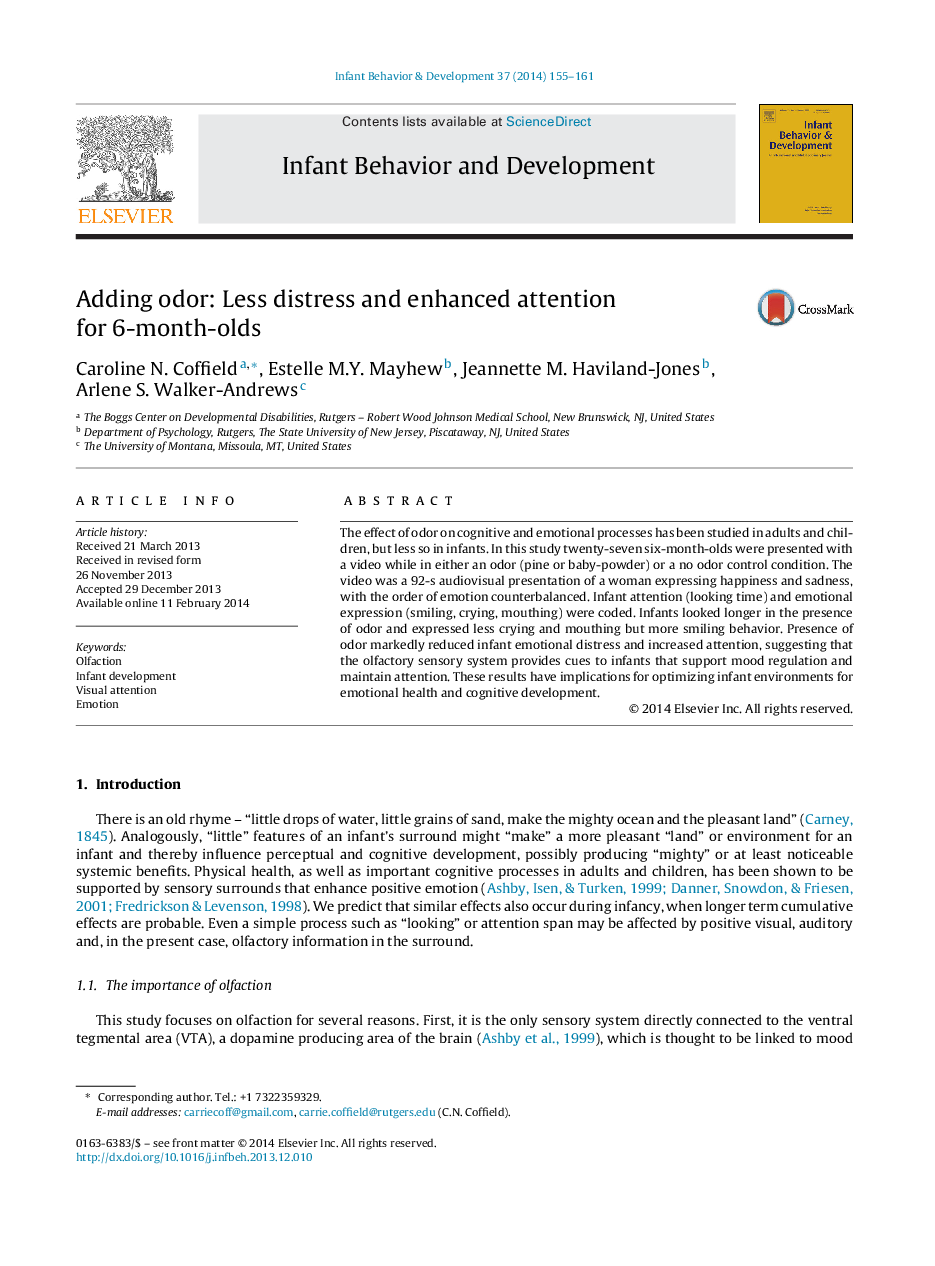| Article ID | Journal | Published Year | Pages | File Type |
|---|---|---|---|---|
| 917178 | Infant Behavior and Development | 2014 | 7 Pages |
•Infants were shown sad or happy dynamic stimuli with (pleasant) odor present or absent.•Infants looked longer and expressed more positive facial expressions in the presence of odor.•The olfactory system may provide cues supporting mood-regulation and maintenance of attention in infants.
The effect of odor on cognitive and emotional processes has been studied in adults and children, but less so in infants. In this study twenty-seven six-month-olds were presented with a video while in either an odor (pine or baby-powder) or a no odor control condition. The video was a 92-s audiovisual presentation of a woman expressing happiness and sadness, with the order of emotion counterbalanced. Infant attention (looking time) and emotional expression (smiling, crying, mouthing) were coded. Infants looked longer in the presence of odor and expressed less crying and mouthing but more smiling behavior. Presence of odor markedly reduced infant emotional distress and increased attention, suggesting that the olfactory sensory system provides cues to infants that support mood regulation and maintain attention. These results have implications for optimizing infant environments for emotional health and cognitive development.
